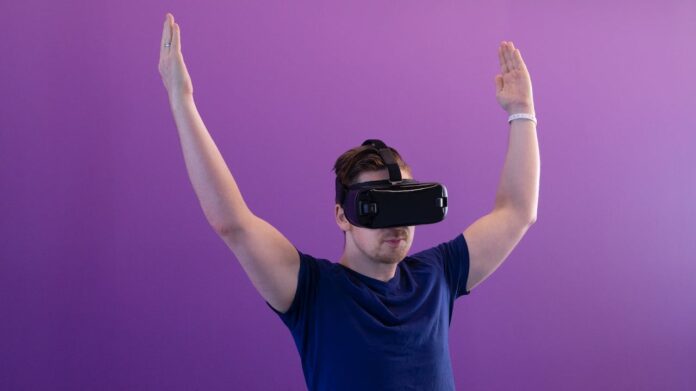Addiction to drugs and various other substances has a chokehold on the US. With time, it seems that these addiction-related problems are only getting worse.
According to a KFF poll, two-thirds of Americans say that addiction has affected their lives. These Americans have either been affected directly due to addiction or because someone close to them has been dealing with addiction problems.
Under such circumstances, treatment facilities need to step up their treatment game plan. For that, they need to embrace technologies that can better equip them to handle such cases.
That being said, here are a few technologies that are widely being used in addiction treatment facilities.
#1 Telemedicine and Virtual Counseling
According to Fortune Business Insights, the global telemedicine industry is a $94.44 billion market. This technology allows individuals seeking help for substance abuse to connect with healthcare professionals remotely, breaking down geographical barriers and expanding access to treatment. Through secure video calls, patients can engage in therapy sessions, consultations, and even group counseling from the comfort of their homes.
Telemedicine offers several advantages in addiction treatment. It enables consistent follow-up care, facilitates regular check-ins, and provides a lifeline for individuals who may face challenges attending in-person appointments. Additionally, virtual counseling helps reduce the stigma associated with seeking treatment, as individuals can maintain confidentiality and privacy while receiving the support they need.
#2 Wearable Technology for Monitoring and Accountability
Wearable technology, such as fitness trackers and smartwatches, has found its way into addiction treatment as a valuable tool for monitoring and accountability. In the context of recovery, wearables are particularly useful for monitoring substance use patterns, detecting triggers, and assessing overall well-being.
Rehabilitation facilities often utilize wearable devices to encourage accountability and promote a healthier lifestyle. Patients can set goals, receive real-time feedback, and share their progress with healthcare providers, creating a collaborative and supportive environment. This technology not only enhances the monitoring of sobriety but also empowers individuals to take an active role in their recovery journey.
#3 Addiction Treatment Software
Substance abuse rehabilitation centers use addiction treatment software for several purposes. These systems or software keep track of patient data at these facilities and help with medical billing, medical history keeping, and overall practice management. Electronic medical records or electronic health records (EHR) later help professionals provide better care and treatment plans to the patients.
According to Accumedic Computer Systems, addiction treatment software allows professionals at these treatment centers to ensure an efficient workflow. The real-time data-sharing facilities that the software provides also help treatment teams provide better collaborative patient care. On top of all this, these systems guarantee maximum data security and privacy to keep all patient matters or treatment records confidential.
In short, addiction treatment systems help ensure privacy and maximum efficiency at treatment centers.
#4 Virtual Reality (VR) Therapy
Virtual reality (VR) therapy is emerging as a groundbreaking tool in addiction treatment, offering immersive experiences that can aid in the recovery process. VR environments simulate real-world scenarios, allowing individuals to confront and navigate triggers and challenges in a controlled and therapeutic setting. This technology is particularly effective for exposure therapy, helping patients build resilience and coping skills in the face of substance-related cues.
VR therapy goes beyond traditional talk therapy by providing a multisensory experience that engages sight, sound, and touch. This immersive approach has shown promise in reducing cravings, improving emotional regulation, and enhancing overall treatment engagement. As addiction treatment continues to evolve, virtual reality therapy stands out as an innovative and impactful addition to the therapeutic toolkit.
As reported by the European Union, EU scientists are also using VR to build better self-control in addiction recovery. VR can help patients overcome their lack of impulse control and decrease relapse rates.
#5 Artificial Intelligence (AI) for Predictive Analytics
AI algorithms analyze vast datasets, including patient demographics, treatment histories, and outcomes, to identify patterns and predict potential relapse risks. This proactive approach allows healthcare providers to intervene early, tailor treatment plans, and provide targeted support to individuals in recovery.
Furthermore, AI-driven technologies can assist in treatment planning by identifying the most effective therapeutic modalities for specific individuals. By leveraging machine learning, addiction treatment facilities can continuously refine and improve their approaches based on real-time data. This can contribute to a more adaptive and responsive healthcare system.
In conclusion, the integration of technology into addiction treatment facilities marks a significant leap forward in the way we approach recovery. From telemedicine to AI, these technologies are reshaping the landscape of addiction treatment, making it more accessible, personalized, and effective. As technology advances, it can further revolutionize the field, offering new possibilities for supporting individuals on their journey to sustained recovery.





